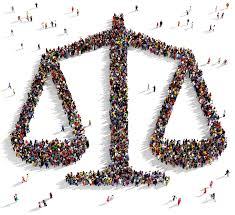 British Columbia has become the latest battleground over how to address the A2J crisis in Canada. The Law Society of British Columbia’s Annual General Meeting was originally scheduled for October 29, but was postponed at the last minute after technical problems. Two contentious proposals were on the agenda.
British Columbia has become the latest battleground over how to address the A2J crisis in Canada. The Law Society of British Columbia’s Annual General Meeting was originally scheduled for October 29, but was postponed at the last minute after technical problems. Two contentious proposals were on the agenda.
The first concerns the use of public dollars for legal assistance and the responsibilities of the private Bar. A proposal to mandate all BC lawyers to contribute pro bono hours to assist parties without representation raised objections from some of the province’s fiercest defenders of Legal Aid, saying that this shifted the burden from government to private lawyers. This has been reduced to a “compromise” resolution, passed at the Annual General Meeting of the Law Society’s members on December 4, that commits the Society “to encourage, incentivize and reduce barriers to members to undertake legal aid and pro-bono cases within their field of expertise, which assist women, indigenous peoples, or relate to poverty law, for a minimum of 25 hours per calendar year.”
Also on the agenda and debated at the rescheduled AGM this week (attended by more than 1,700 of BC’s 12,000+ lawyers) was a motion regarding BC Law Society proposals to expand alternative legal service providers for family matters. But by the time the rescheduled meeting took place, the BC Attorney-General had already tabled, and the legislature adopted, amendments to the Legal Profession Act in relation to paralegals.
Two changes are critical. The first is the expansion of what is now called the Legal Professions Act (see section 25 of the amending legislation) to include paralegals (section 15). This sets up the “shell” for expanding family and other legal services offered by paralegals, while the Law Society still holds the power to determine and regulate the scope of services offered. A second amendment (section 31) makes non-binding any resolution by the membership that instructs their Benchers (the elected “Parliament” of the profession) to ask government to “rescind or amend” the Legal Professions Act. This limits the powers of the membership to instruct the Benchers via a resolution of the AGM, and may set up a new battle between lawyers at large and their representatives.
At the December 4 AGM, a motion was passed by an overwhelming majority directing the Benchers to request the provincial government not to pass regulations implementing the new “shell” provisions on licensing paralegals, until the Law Society completes further consultations with its members. In addition, the motion directs Benchers not to use the “shell” legislation to authorize licensed paralegals to practice family law.
Confusing? Yes, but the bottom line here is that while the continued resistance to family paralegals among some parts of the Family Bar is both discouraging and familiar, AG Eby’s move to press ahead with “shell” legislation is significant and could indicate a determination by the provincial government to see that some expansion of services takes place. It remains to be seen how bold the BC Benchers will be in moving forward, and how much longer the consultations (currently extended to December 31) and subsequent debate will drag on before there is further government pressure to get the job done.
Facing the same contentious issue over expanding paralegal services, the Ontario Law Society and provincial government will be watching this game of chess play out with interest.
And that’s not all. In response to increasingly vocal complaints about the paucity of legal aid in the province and the fight over mandating pro bono hours, BC Attorney-General David Eby has asked Jamie McClaren, a long-time A2J advocate and Director of Access Pro Bono BC, to undertake a review of legal aid in the province. Issues on the table include current service delivery models used by the Legal Services Society, who should provide public legal services (for example, private lawyers, duty counsel, paralegals) and what choices should be available to the public, and how public services should be financed (for example, limited / unlimited certificate hours, hybrid models with client contribution). Public consultations have now closed and a report with recommendations is expected on December 31 (Jamie has his work cut out for him!).
We will update both of these important A2J stories in the New Year.

Every branch of Law needs to be looked at, not just family Law. The whole system is a failure and an injustice in itself.
I follow the project with plenty of interest. However, I am wondering why everything seems to be dealing with lawyers or para legals. For years Family Mediators have been providing services to the general public. Accredited Family Mediators are very capable of proving all services needed to divorce, or custody and access/child support. Is there any thought given to making better use of those qualified and accredited?
Please let me know what can be done when a self litigant is denied to use the self help center and not allowed to get help from the access Probono. Thank you
Hello, thanks for your question – if you email us at representingyourself@gmail.com we can provide you with a list of possible resources that might be helpful to you.